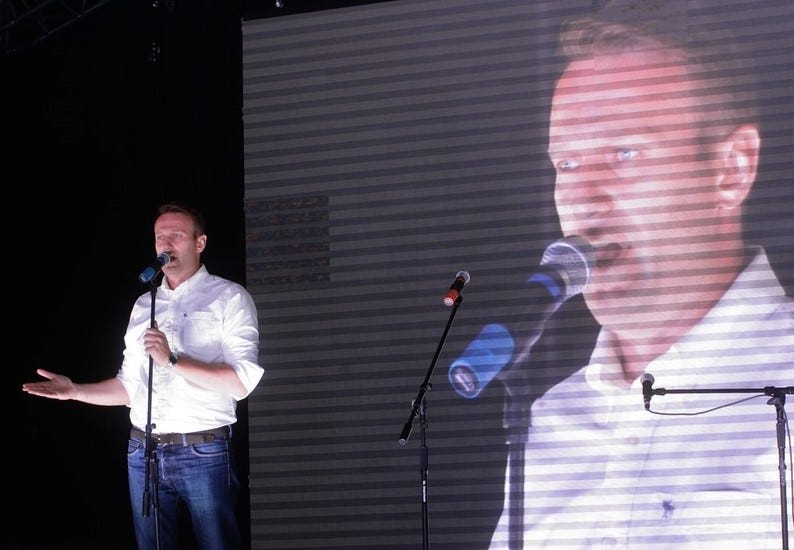Welcome to The Hundred! This is our interview format, in which we give one expert a little more space. If you would like to support our work, subscribe below.
Ben Noble is Associate Professor of Russian Politics at University College London and an Associate Fellow at Chatham House in the Russia and Eurasia Programme. He is also the co-author of Navalny: Putin’s Nemesis, Russia’s Future? Our questions are in bold, his answers in block quotes.
Who was Alexei Navalny?
Alexei Navalny was the leading figure of the Russian political opposition, even from behind bars. He was a charismatic, vociferous critic of Vladimir Putin, who was able to build a movement that posed a significant political challenge to Putin’s regime. Some of his stated positions changed over time, including nationalist, xenophobic, and racist comments that drew criticism, even as he apologised for some or simply moved on to new issues.
How did he rise to prominence?
He rose to prominence originally as a blogger, investigating and writing about state corruption. As his popularity grew, he started building a team and a set of organisations to expand these investigations. He and the team became savvy users of social media to spread this content and engage people – something he also did when rallying crowds of protestors. He was able to draw on all of this as a politician, coming second in the 2013 Moscow mayoral election and attempting to run in the 2018 presidential election.
What was his vision for Russia?
He wanted Russia to be a rule-of-law, democratic state with free markets, sensible social policies, and markedly less elite-level corruption – something that would make Russia a European state, in his view. He tried to inspire people to think about the “beautiful Russia of the future”, in contrast to a regime fixated on past glories.
Why did Navalny return to Russia?
He saw himself as a Russian politician who had to be in Russia. He didn’t want to join the ranks of Russian political dissidents abroad, who criticised Vladimir Putin from relative safety and comfort. Besides, he never decided to leave: he was unconscious when flown to Germany in August 2020, following poisoning with Novichok.
Was he a serious threat to Putin’s regime?
The core threat that Navalny posed was as somebody able to present an alternative to a system that was increasingly intolerant of alternatives. That means that the threat he posed was always more than simply a question of his polling figures. Also, the network of regional offices that he set up as part of the 2018 presidential election posed the most significant form of organised, autonomous opposition to the Kremlin, even as the authorities denied his attempts to register a political party.
Will Navalny’s death mobilise opposition in Russia?
It’s probably too early to say – but the prospects for mobilisation are grim. The Russian authorities have taken formidable steps to crack down on dissent, especially following Navalny’s return in 2021 and the full-scale invasion of Ukraine in 2022.
What will be his legacy?
There are many strands to Navalny’s legacy. He will live on as a potent symbol of opposition to Putin. But he will also live on through his team’s continued work, their many past, present, and future investigations, and the call for Russians to imagine a Russia without Putin. And he will also serve as a reminder of the extraordinary effort and courage required to oppose the current regime.
Who will succeed Navalny?
It’s unclear whether he’ll be succeeded by a single person. His wife, Yulia Navalnaya, has said that she will continue his mission – and she is likely to enjoy support, even from those who did not align themselves with Navalny. Many will admire the courage she is showing by taking on a political role she appeared to shun while her husband was still alive.
What’s a question you wish you were asked and what’s your answer to it?
How will the Russian authorities try to shape Navalny’s legacy?
They will try to make people forget Navalny as quickly as possible – or further malign him when they do mention his name. That was already evident before his death, with markedly little coverage of him in state media. But it will be much more difficult for the authorities to extinguish Navalny’s ideas than his organisations. Even as many have despaired following his death, his own advice to Russians will likely reverberate long into the future: “don’t give up”.
That’s it for this edition of The Hundred. Please share this post with friends and colleagues if you found it interesting. If you’re reading this via Substack and not email, you can also restack it. Thanks!




